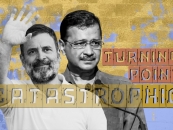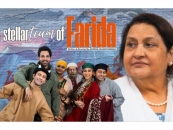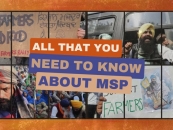
#MeToo – Do Sexual Harassers keep Good Science from Happening?
by Yash Saboo October 26 2017, 6:47 pm Estimated Reading Time: 3 mins, 17 secsBoston University (BU) is investigating sexual harassment complaints made against a prominent Antarctic geologist by two of his former graduate students. The women allege that David Marchant, then an assistant professor, harassed them during different research expeditions starting 2 decades ago, while they were isolated in small groups in the Antarctic. In supporting documents and interviews, several other women report similar treatment from Marchant in that period.
The allegations come at a time of heightened attention to sexual harassment and gender discrimination in science. This and so many similar allegations make us question our dependency on Science.
In one online survey published in PLOS ONE and covered by Science in 2014, 71% of 512 female respondents reported being sexually harassed during fieldwork; 84% of them were trainees.
Think about this, after the trend of #metoo and the true revelations of Harvey Weinstein, we might watch every movie touched by him with preconceived notions. Do we then wire ourselves differently for scientific discoveries and advancement done by sexual harassers?
There’s a word for that kind of work: “problematic.” It’s stuff you love tainted by people you hate.
But what about, for example, exoplanets? Geoff Marcy, a pre-eminent astronomer at UC Berkeley, pioneered techniques for finding planets outside Earth’s solar system. He also, it seems, sexually harassed students without repercussion for decades. Clearly, that kept good science from happening—it’s reasonable to conclude that Marcy’s alleged abuses prevented his targets from doing their best work, or forced them out of science altogether. He pushed all the science they might have done into some alternate timeline.
The journal Science revealed earlier this month that the latest case involved Christian Ott, a professor of theoretical astrophysics at Caltech University, in the United States. Frustrated that Ott was not fired and only placed on unpaid leave for a year, the two female students who raised the allegations took their story to the popular online news outlet Buzzfeed.
Also this month, US Congresswoman Jackie Speier raised the case of Professor Tim Slater, who had been investigated for various sexual harassment incidents that began after he was hired by the University of Arizona in August 2001. Slater went on to the University of Wyoming. Slater spoke to the news website Mashable and said he had received sexual harassment training as an outcome of the investigation.
But Congresswoman Speier questioned why the investigation into Slater’s sexual harassment was sealed “while he went on with his career”, even though women who were victims lost years of study and career progress due to his conduct.
"We have that same dynamic happening in academia and academic fieldwork [as in Hollywood]," Robin Nelson told Newsweek. Nelson, an anthropologist at Santa Clara University, published a paper with three of her colleagues on harassment in scientific fieldwork in American Anthropologist.
The group's first paper, published in 2014, quantified the amount of harassment experienced by people who responded to a survey. This latest paper, however, draws on the accounts of particular volunteers. Some are shocking. The people—men and women—interviewed reported more than forty instances in total, including unnecessary tests of their physical strength and being asked to do certain tasks, like shopping or cooking, simply because of their gender identity. Some witnessed or experienced sexual harassment and assault.
"One of the parallels I see between fields, between professional realms, is an abuse of power," Nelson told Newsweek. "You have people who are at the very top of an exclusive field, and because of this they are able to make or break rules as they desire." The downstream effects of sexual harassment have the potential to colour everything, from the apps you use to the news you read and the science you are made to believe.





-173X130.jpg)
-173X130.jpg)

-173X130.jpg)


-173X130.jpg)